#contemporary Western criticism.
Explore tagged Tumblr posts
Text
أسئلة المخزون الايديولوجي في فكر علي حرب
أسئلة المخزون الايديولوجي في فكر علي حرب أسئلة المخزون الايديولوجي في فكر علي حرب الكاتب : بوكراع رفيعة الملخص: حظيت مسألة البحث في المخزون الإيديولوجي بقسط كبير من الاهتمام والنقاش والمعالجة؛ والبحث في إشكالية الإيديولوجيا في الفكر العربي المعاصر كان منطلق أساسي في التوجه النقدي التفكيكي لعلي حرب. تنبني مقاربته النقدية على اعتبار إزاحة الترسبات الإيديولوجية هي العامل الأساسي الذي يضمن للعقل…

View On WordPress
#Ali Harb#contemporary Arab criticism#contemporary Western criticism.#criticism project#ideology.#Mohamed Mohamed Abed Aldjabiri#text#التفكيك؛ الايديولوجيا؛ النص؛ علي حرب؛ محمد عابد الجابري؛ المشاريع النقدية؛ النقد العربي المعاصر؛ النقد الغر
0 notes
Text
أسئلة المخزون الايديولوجي في فكر علي حرب
أسئلة المخزون الايديولوجي في فكر علي حرب أسئلة المخزون الايديولوجي في فكر علي حرب الكاتب : بوكراع رفيعة الملخص: حظيت مسألة البحث في المخزون الإيديولوجي بقسط كبير من الاهتمام والنقاش والمعالجة؛ والبحث في إشكالية الإيديولوجيا في الفكر العربي المعاصر كان منطلق أساسي في التوجه النقدي التفكيكي لعلي حرب. تنبني مقاربته النقدية على اعتبار إزاحة الترسبات الإيديولوجية هي العامل الأساسي الذي يضمن للعقل…

View On WordPress
#Ali Harb#contemporary Arab criticism#contemporary Western criticism.#criticism project#ideology.#Mohamed Mohamed Abed Aldjabiri#text#التفكيك؛ الايديولوجيا؛ النص؛ علي حرب؛ محمد عابد الجابري؛ المشاريع النقدية؛ النقد العربي المعاصر؛ النقد الغر
0 notes
Photo
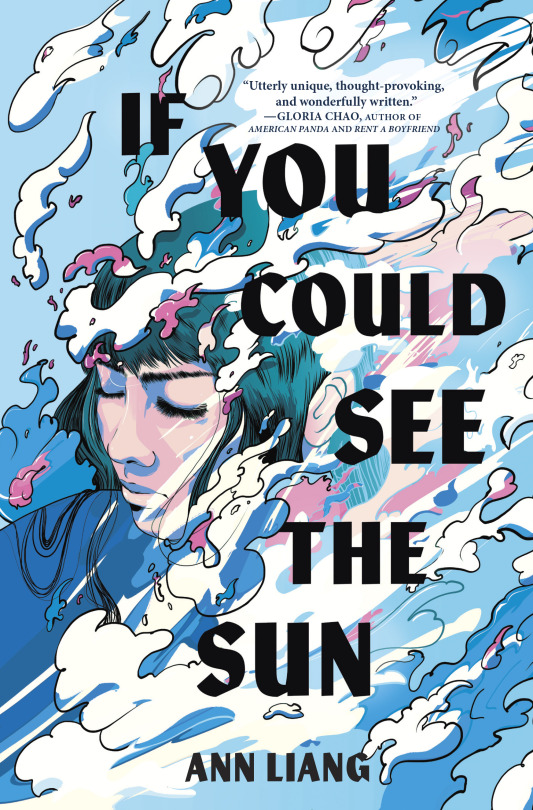
2022 reads // twitter thread
If You Could See The Sun
When she discovers she can go invisible, a girl at an international boarding school in China uses an anonymous app to help her classmates find secrets and information so she can pay the school fees her scholarship doesn’t cover
academic stress, academic rivals romance
#If You Could See The Sun#aroaessidhe 2022 reads#read in december; held for strike#tbh I from the title and cover I was expecting like. something that’s deep and complex into mental health and magical realism but actually t#this is pretty lighthearted …….#or I guess like. average ya contemporary tone#which is not really a criticism of the book i guess I just wasn’t That invested based on my expectations!#I feel like some stuff just happened the way it did because of Plot and it didn’t really need to..#would recommend if you think you like this sort of thing tho!#definitely interesting to have YA set at boarding schools in non western countries
5 notes
·
View notes
Text
[ID: Three gifs of an exchange between Butch and Sundance. Butch says, "Listen, I don't mean to be a sore loser, but when it's done and if I'm dead... kill him." Sundance responds, "Love to." End ID.]
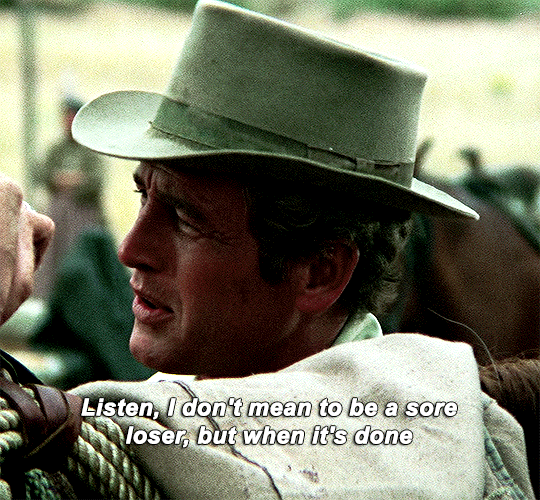


- Maybe there's a way to make a profit in this. Bet on Logan. - I would, but who'd bet on you?
BUTCH CASSIDY AND THE SUNDANCE KID 1969, dir. George Roy Hill
#butch cassidy and the sundance kid#forced my parents to watch with me last night and they both fell asleep during it#but they were amused bc my grandfather loved westerns and they said he'd be ecstatic to know i do too#he's why!#whenever i went to visit my grandparents he had on a western! or the last gunfighter ballad!#anyway#iirc some critics today think this movie is only funny to its contemporary audiences#that is so not true it has always been and still is fucking hilarious
5K notes
·
View notes
Text
New to witchcraft? Awesome! Here's some things you should pursue.
An understanding of sympathetic magic: Correspondences, their metaphysical and theoretical framework, and their derivation.
Magical systems that incorporate the entire gender spectrum.
Energy work that isn't based on visualization.
The means of manifestation: How, where, and when spells affect physical change. The physical mechanisms through which witchcraft manifests beyond just willpower/intent/wishes/etc.
The history and subsequent influences of, and on, popular contemporary practices like Hermeticism, "Ceremonial Magick"/Golden Dawn, Wicca, and New Age/New Thought/LOA/Reiki.
How to approach and practice magic with critical thinking skills.
Influence of consumerism on contemporary practices.
Divination as systems: all methods of divination beyond tarot, their statistical applications, and their different methods of use.
The anthropology of medieval Arabia, Europe, Near East, and Asia relative to the magical or occult publications of the era. What is purely religious, parareligious, or syncretist and what does that mean for the interpretation of the text?
The genuine limits of our knowledge of the ancient world, what's possible for us to know and what can't we know?
Conversations with practitioners of closed or semi-closed practices and perspectives of POC when it comes to what the western world would label as "witchcraft".
The differences and similarities between superstition and the practice of witchcraft.
An understanding of the influence of colonialism on modern witchcraft and the language used to discuss magic.
Critical Race Theory (CRT), Queer Theory, and systems of oppression.
Botany and herbology: An understanding of the physical and medical properties of plants.
Building a personal lexicon for modern and/or colloquial terms used in and by the witchcraft community to describe and discuss practices.
Spell design: What makes a spell a spell? What is the smallest or slightest action that can be considered a spell and why? What are the most important and influential elements of the design and application of a spell?
Altars: Their use, design, and potential; whether or not an altar would benefit your practice or goals for practice.
A critical approach to spirit work and astral projection, being able to discern between personal narratives and probable experiences.
A safe and solid community to become a part of. One that does not allow the influence of personal narratives (Without addressing them as such), doesn't allow for the mixing of adults and minors, and with established and enforced logical and reasonable rules.
Collect and cross-reference correspondences from as many sources as possible, then start to create your own.
Try to find a STEM subject that interests you and study it through any non-dogmatic avenues available to you.
The items highlighted in blue are things I highly recommend!
Here is a list of things to avoid.
This is, of course, not an end-all-be-all list of possible responsible and healthy pursuits.
You can learn more about me, find my master-post, check out my Patreon, and suggest content here.
#witchcraft#beginner witch#baby witch#baby witch tips#witchcraft for beginners#begginer witch#witchcraft community
581 notes
·
View notes
Text
At the outset of H. G. Wells’s The War of the Worlds (1898), Wells asks his English readers to compare the Martian invasion of Earth with the Europeans’ genocidal invasion of the Tasmanians, thus demanding that the colonizers imagine themselves as the colonized, or the about-to-be-colonized. But in Wells this reversal of perspective entails something more, because the analogy rests on the logic prevalent in contemporary anthropology that the indigenous, primitive other’s present is the colonizer’s own past. Wells’s Martians invading England are like Europeans in Tasmania not just because they are arrogant colonialists invading a technologically inferior civilization, but also because, with their hypertrophied brains and prosthetic machines, they are a version of the human race’s own future.
The confrontation of humans and Martians is thus a kind of anachronism, an incongruous co-habitation of the same moment by people and artifacts from different times. But this anachronism is the mark of anthropological difference, that is, the way late-nineteenth-century anthropology conceptualized the play of identity and difference between the scientific observer and the anthropological subject-both human, but inhabiting different moments in the history of civilization. As George Stocking puts it in his intellectual history of Victorian anthropology, Victorian anthropologists, while expressing shock at the devastating effects of European contact on the Tasmanians, were able to adopt an apologetic tone about it because they understood the Tasmanians as “living representatives of the early Stone Age,” and thus their “extinction was simply a matter of … placing the Tasmanians back into the dead prehistoric world where they belonged” (282-83). The trope of the savage as a remnant of the past unites such authoritative and influential works as Lewis Henry Morgan’s Ancient Society (1877), where the kinship structures of contemporaneous American Indians and Polynesian islanders are read as evidence of “our” past, with Sigmund Freud’s Totem and Taboo (1913), where the sexual practices of “primitive” societies are interpreted as developmental stages leading to the mature sexuality of the West. Johannes Fabian has argued that the repression or denial of the real contemporaneity of so-called savage cultures with that of Western explorers, colonizers, and settlers is one of the pervasive, foundational assumptions of modern anthropology in general. The way colonialism made space into time gave the globe a geography not just of climates and cultures but of stages of human development that could confront and evaluate one another.
The anachronistic structure of anthropological difference is one of the key features that links emergent science fiction to colonialism. The crucial point is the way it sets into motion a vacillation between fantastic desires and critical estrangement that corresponds to the double-edged effects of the exotic. Robert Stafford, in an excellent essay on “Scientific Exploration and Empire” in the Oxford History of the British Empire, writes that, by the last decades of the century, “absorption in overseas wilderness represented a form of time travel” for the British explorer and, more to the point, for the reading public who seized upon the primitive, abundant, unzoned spaces described in the narratives of exploration as a veritable “fiefdom, calling new worlds into being to redress the balance of the old” (313, 315). Thus when Verne, Wells, and others wrote of voyages underground, under the sea, and into the heavens for the readers of the age of imperialism, the otherworldliness of the colonies provided a new kind of legibility and significance to an ancient plot. Colonial commerce and imperial politics often turned the marvelous voyage into a fantasy of appropriation alluding to real objects and real effects that pervaded and transformed life in the homelands. At the same time, the strange destinations of such voyages now also referred to a centuries-old project of cognitive appropriation, a reading of the exotic other that made possible, and perhaps even necessary, a rereading of oneself.
John Rieder, Colonialism and the Emergence of Science Fiction
#words#hg wells#fiction#science fiction#colonialism and the emergence of science fiction#john rieder
459 notes
·
View notes
Text


Propaganda
Louise Brooks (Pandora's Box, Diary of a Lost Girl)—Louise Brooks started off as a dancer and went to work in the Follies before going to Hollywood. Disappointed with her roles there, she went to Germany and proceeded to make Pandora's Box, the first film to show a lesbian on-screen (not her but one of her many doomed admirers in the film), and Diary of a Lost Girl, both of which are considered two of the greatest films of the 20th century. She helped popularize the bob and natural acting, acting far more subtly than her contemporaries who treated the camera as a stage audience. After the collapse of her film career and a remarkably rough patch as a high-end sex worker, she was rediscovered and did film criticism, notably "Lulu in Hollywood," which Rodger Ebert called "indispensable." Also, christ. Look at her.
Vilma Bánky (The Son of the Sheik, The Eagle)—She's famous now for being a silent star ruined by the transition to talkies, unlike her frequent co-star Ronald Colman. I think that's a shame, as she has a real vivaciousness and charm in The Winning of Barbara Worth. In this *checks notes* western about environmental engineering, she rides around the desert and gets wooed by both Colman and a young Gary Cooper (good for her dot gif.) Even in stills from films that are sadly lost, I think there is a distinctive warmth and individuality to her. Also she is extremely hot in her extremely pre-Code dress in The Magic Flame.
This is round 2 of the tournament. All other polls in this bracket can be found here. Please reblog with further support of your beloved hot sexy vintage woman.
[additional propaganda submitted under the cut.]
Louise Brooks:

"Defined the style of the modern flapper. A gaze that could make a stone fall in love."
"Louise Brooks left a legend far greater than her real achievement as an actress, but even today few people have seen her films. In our own time, the fascination with Brooks seems to have begun in 1979 with a profile by Kenneth Tynan in the New Yorker, which revealed that the actress who made her last movie in 1938 was alive and living in Rochester, N.Y. Such was the power of Tynan's prose that people began to seek out her existing films, primarily this one, to discover what the fuss was about. What we see here is a healthy young woman -- she was 23 when the film was released -- with whom the camera, under G.W. Pabst's influence, is fascinated. There is a deep paradox in Brooks and her career: the American girl who found success in the troubled Europe between two wars; the vivid personality who briefly dazzled two continents but faded into obscurity; the liberated woman who had affairs with such prominent men as CBS founder William S. Paley as well as with women including (by her account) Greta Garbo but wound up a solitary recluse. And all of this seems perfectly in keeping with her most celebrated role in Pandora's Box. For despite her bright vitality, her flashing dark eyes and brilliant smile, Brooks's Lulu becomes the ultimate femme fatale, careering her way toward destruction, not only of her lovers but eventually of herself."

"She invented having bangs to indicate that you have borderline personality disorder"
"chances are if youve ever seen a "flapper girl" character or even just art of a generic flapper type made after the 20s it was based on her appearance - particularly the bob hairstyle! she had some pretty rough experiences through her life before during and after her tumultuous acting career which ended in 1938 but she made it to the 80s, wrote an autobiography and did a lot of interviews that she was never afraid of being honest in about her own life or peers of the age, and apparently was unabashed about some affairs she had with well known women (including greta garbo!!)"
"She read Proust and Schopenhauer on set between sets. She was one of the original flappers/new women of the 1920s. She had a one night stand with Garbo and was the inspiration for Sally Bowles in Cabaret. Truly a stone cold fox."

"on her wikipedia page it says her biographer said she "loved women as a homosexual man, rather than as a lesbian, would love them" and while i have no idea if this is true or not i thought that was very gender of her"
"despite being american she was big in german expressionist films and thus her aesthetic was unmatched!!"
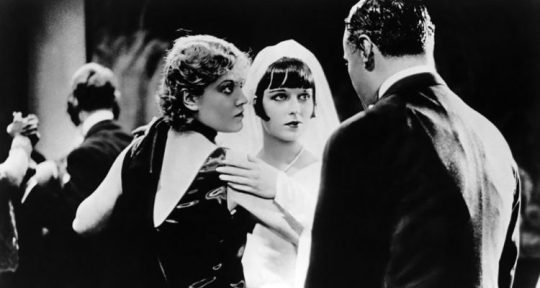
So far ahead of her time in regard to portraying complicated women. Timeless elegance. "I learned to act by watching Martha Graham dance, and I learned to dance by watching Charlie Chaplin act.” - Louise Brooks
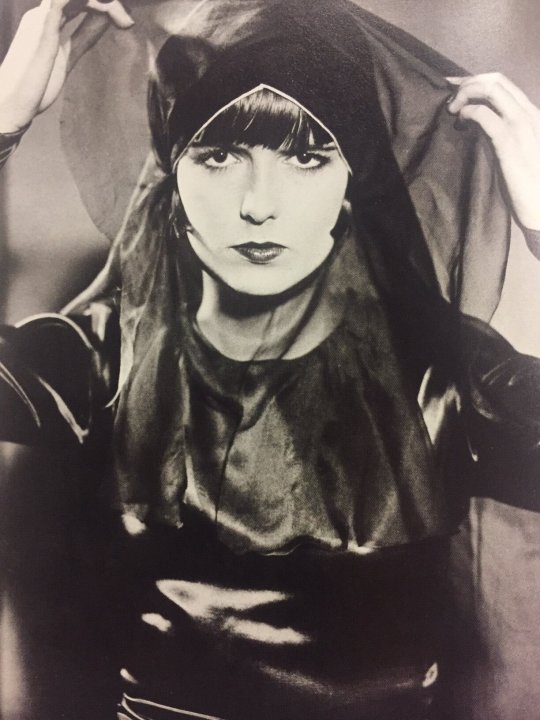
Vilma Bánky:

I love Vilma Bánky! She was called "the Hungarian Rhapsody" and apparently had a thick Hungarian accent which I think is cute. Several men fighting over the same women can be very cliche but when I saw her in The Winning of Barbara Worth (1926) I got it because my god she really is that drop dead gorgeous. She's also a wonderful actress though, expressive yet natural. I read once that seeing her in The Dark Angel (1925)—a film now seemingly lost—inspired Merle Oberon to become an actress :)



This is more of a factoid but she was apparently the women's golf champion at Wilshire Country Club through the 1940s. [link] I just think she's neat.
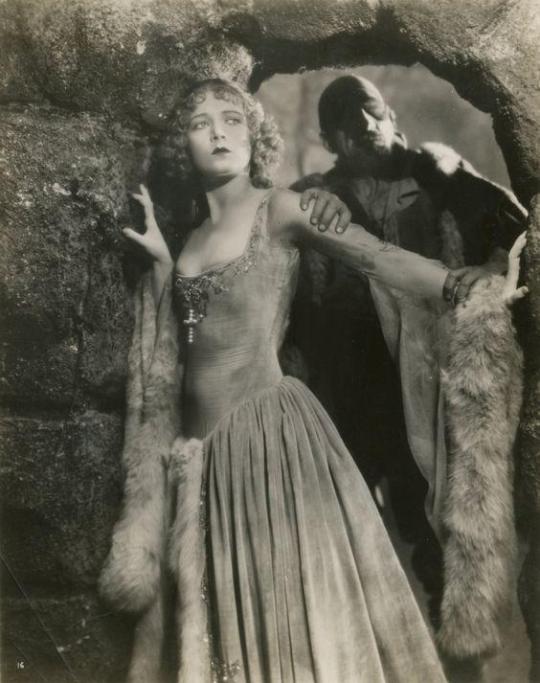

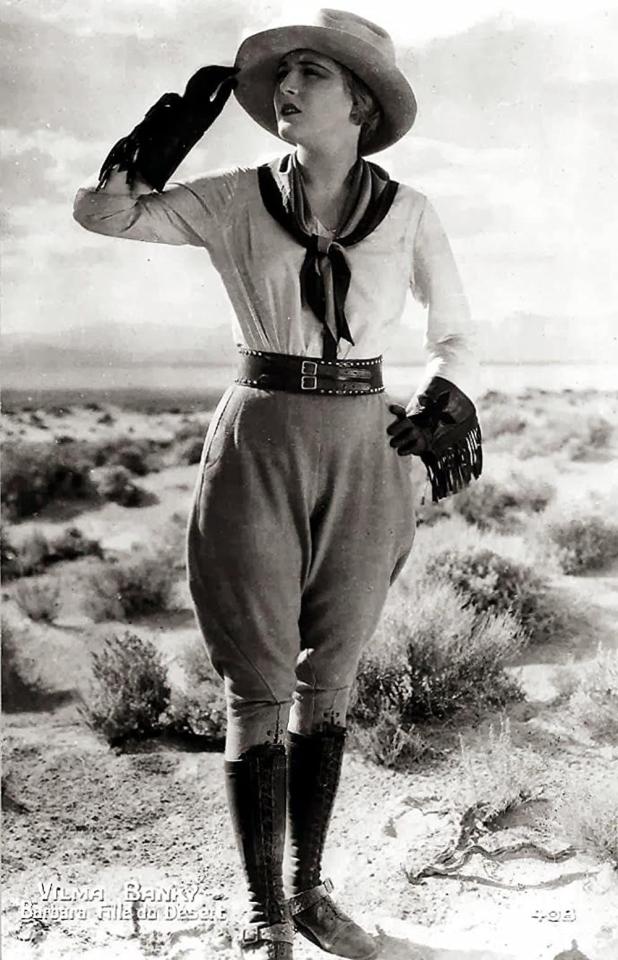

I love herrrrr she’s my everything. Watching her kiss Rudolph Valentino in Son of the Sheik made me so flustered I had to pause the movie to cool down. She’s the prettiest the most beautiful the most incredible woman I’ve ever seen. I could look at a picture of her for hours
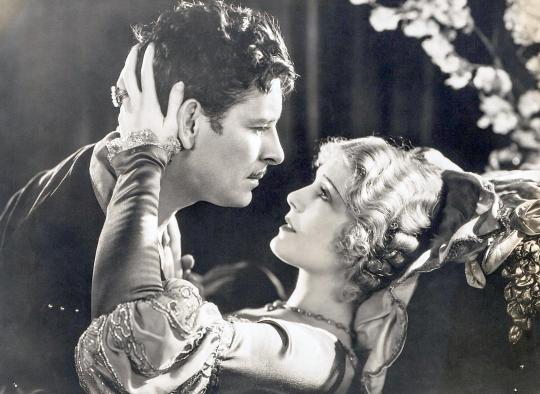
306 notes
·
View notes
Text
pixeljade: #it IS very much a complex issue and I feel like saying that has been pissing off a lot of folks on both sides #one fact i would add to the table is that the current actions against palestine DO constitute a genocide by definition #its a word i hear pro-Israel people get very upset by because they think it is inherently comparing this to the holocaust #but its not. some people DO and thats its own discussion. but calling it a “genocide” is simply accurate and undeniable
Speaking as someone who was that pro-Israel person in her teens and very early 20s, the reactions you're describing are 800% cognitive dissonance freak outs. Most of these people, like me, received either directly or indirectly from their Elders in the Jewish community a very trauma-induced and deeply emotional information about the history of this situation, which boils down to: "They tried to kill us all once and they didn't now we finally have returned to the Promised Land, the only place we have to shield ourselves against It Happening Again. Israel's detractors hate that Jews can defend themselves now, and if any of them, including the Palestinians, were to have their way, they'd see us all dead. We must defend ourselves at all costs, and not let anyone ever put us in existential danger as a people ever again."
And then to have some rando 19 year old who knows jack shit about your or your community or your community's trauma to get up in your face and start screaming at you about genocide? It's only going to trigger that intergenerational trauma, and cause the party being screamed at to dig deeper into their defensive, cognitive-dissonance fueled response. Which, if we were to boil that response down to a thought process, looks like "This person hates me and all Jews. They think we're a hive mind who don't deserve to live. Thank G-d for Israel."
What's complex, is that not everything in that trauma response is wrong, and not everything the dumbass 19 yo who has no interest in unpacking their own learned anti-Semitism was wrong.
Israel's actions towards Palestinian Arabs since 1948 does fit several definitions of genocide and/or ethnic cleansing. And many of the Westerners who scream about it the loudest are fairly openly anti-Semitic.
Now, as someone with big Holocaust intergenerational trauma in her family, I am sympathetic to the Jewish kid in this scenario. But cognitive dissonance is just that: the domain of a child. Adults understand that cognitive dissonance is a little voice in our head telling us "Hey comrade our discomfort with this is a little much. Maybe this is a learning opportunity?"
I mean, that's what I did. But it's difficult. Its uncomfortable, and that scares people. It's much easier to believe that "They call it the Naqba because they hate us and think our survival and access to national self-determination is a disaster,"* than it is to understand that "They call it the Naqba because it was the near total dispossession and ethnic cleansing of Palestinian Arab populations from their generational homes and properties."
And again, everything I'm saying here is a result of my journey from a hardcore Zionist-in-the-contemporary-sense child (though always left in terms of domestic US Politics), to a grown Holocaust historian who understands that Israel is no better and no worse than all the other nation states (for new readers, I understand the nation-state as a political entity, the logical end point of which is genocide and/or ethnic cleansing), and openly criticizes it on those grounds.
*A rabbi in a youth group I belonged to told me this almost verbatim when I was 15. And when you're 15 and somebody tells you they love you you're gonna believe them.
#this post is clunky but i have a fever so w/e#i have great love and compassion for my community as an american jewish woman#so much of how american jewry remembers the history of israel is shaped by our collective trauma#sometimes in ways that we ourselves don't understand#i'm not here to shit on them#but i am here to compassionately call them in#and the only groups who i don't expect that compassion from#are actual palestinians
210 notes
·
View notes
Text





FREDERIC LEIGHTON - THE GARDEN OF THE HESPERIDES, 1892
In Greek mythology, the Hesperides were the nymphs associated with the sunset. They were frequently depicted tending to a beautiful garden known as the Garden of the Hesperides, located at the western edge of the world, near the realm of the setting sun. The most well-known tale concerning the Hesperides revolves around their role as guardians of the Golden Apples.
The Garden of the Hesperides was the sacred garden and orchard belonging to the goddess Hera, featuring a grove of apple trees that bore golden apples. It was believed that the golden apples would grant immortality to anyone who consumed them, a gift from Gaia during the wedding of Hera and Zeus. Not relying solely on the Hesperides to protect the apple trees, Hera also positioned a hundred-headed dragon (serpent) named Ladon, who was perpetually awake. The fruits were highly prized and appeared in several myths: The Judgement of Paris, Hippomenes and Atalanta, and the 11th Labor of Hercules.
The three nymphs are seated comfortably, their heads tilting to one side and their eyelids drooping low. They seem to be in a continuous state of drowsiness. They all recline against the tree's trunk, next to one another, while beside them is the unmistakable figure: the serpent Ladon, who assists them in keeping watch and whom I would suggest is the only one energetic enough for the task. Hesiod described the Hesperides as being ‘clear-voiced’; they took joy in singing. The nymph on the left is certainly playing a lyre, her mouth open, as though she is singing.
Critics noted the painting's intricate details and the ethereal beauty of the Hesperides, which mirrored contemporary fascinations with mythology and aesthetics. The composition and technique of the painting garnered acclaim, enhancing Leighton's reputation as a significant artist in Victorian art. Its exhibition marked an important milestone in his career, influencing his later works, especially Flaming June.
62 notes
·
View notes
Text
Italian literature tournament - Second round.


Propaganda in support of the authors is accepted, you can write it both in the tag if reblog the poll (explaining maybe that is propaganda and you want to see posted) or in the comments. Every few days it will be recollected and posted here under the cut.
Propaganda in favour of Primo Levi by @itsmalombra
What to say about Primo Levi? Jew, a leftist until his death, Holocaust survivor (thanks to beng a chemist, he was considered useful by the SS and wasn't killed as soon he arrived to Auschwitz), he condemned with decades of advance the first cases of violence from the just started Israel occupation aganst the Palestinians, having still care for the difficulties that many jews like him were experiencing in Europe. He is one of the author you have to read if you want to understand the contrast and the difference between anti-semitism and anti-sionism. The horrors he endured were the cause of hid death in 1987, possibly by suicide.
About his relationship with other italian jews who moved in Occupied Palestine/Israel but at the same time his distrust to Menachem Begin policies and latent antisionism: Levi was clearly inspired by them, but not enough to follow their example and join his fate in the postwar period to the Zionist project in Israel. He had a complicated relationship to the country. […] Like other Jews, Levi kept up with news from the region, especially during times of crisis. His responses to two of these crises reveal a strong attachment to Israel on a personal level but also some sharp differences with the country’s policies. His criticisms were political and generally lined up with the views of the Italian Left. They came to a head in 1982, during Israel’s incursion into Lebanon in Operation ‘Peace for Galilee’. […] Much of public opinion in Western countries, including Italy, turned against Israel, especially following the Christian Phalange militia’s massacre of Palestinians in Sabra and Shatila in September, 1982. Levi joined his voice to the protests, signing letters urging Israel’s withdrawal and calling for Begin’s retirement from office. In turn, he himself came under criticism from prominent leaders of the Italian Jewish community, who called for communal solidarity at such a time. Fearing an intensification of hostility against Jews in Italy as a result of vehement anti-Israel and antisemitic demonstrations breaking out across Europe, they also thought it unwise for Jews to join their voices in protest against Israel, as Levi and others were doing. Levi’s Italian Jewish friends living in Israel, some of whom lost family members in the country’s War of Independence and subsequent fighting, also spoke out against him. ‘I retain a close sentimental tie with Israel,’ he confessed at the time, ‘but not with this Israel’. [source]
Another article about this important part of him is here, unfortunately is in italian.
I don’t think there is another author as representative of the Holocaust horror (and war horror in general) in Italy like Primo Levi, considering also is eminence in contemporary literature, his interviews with Philip Roth or Judith Butler, him being the namesake of various international associations against discriminations and violence like the Primo Levi Center, the raw and vivid power of his writing and poetry:
You who live safe In your warm house; You who find, come evening, Hot food and the faces of friends: Consider if this is a man Who struggles in the mud Who knows no peace Who fights for crumbs Who dies because of a No or Yes Consider if this is a woman, Nameless and hairless Without strength to remember Vacant eyes and a womb Cold like a frog in the winter: Consider the fact that this has happened: These words I suggest: Etch them on your heart When staying home and going out, Closing your eyes and rising back; Repeat them to your children: Or may your house crumble, Illness bind you And they turn their faces away from you.
If This Is a Man, Primo Levi, 1947.
To describe his importance not only in the italian, but also european and world-wide canon, it takes months and pages of space, a thing that sadly now I don't have, but if you, readed, have never heard of him, you have in front of you so much of books, essays, poetry and writing by Levi that will let you amazed by his depth of though and sensivity, but most importantly, vote now for him👆.
--------------------------------------------------------------------------
Propaganda in favor of Guido Cavalcanti by @eresia-catara
May I add further propaganda for Guido: He's a noble, he disdains aristocrats, he was Florence's number one Server of Cunt, he was the city's faggot, he was heretical, he went on a random pilgrimage but interrupted it and managed to be buried in a church anyway, he had an archenemy who sent some men to murder him on said pilgrimage, he came back and tried to murder him back in plain daylight, he gave zero fucks about politics, he got exiled because he was considered a menace for the city. He SAW DANTE's poetical talent, encouraged it, shaped it, and through him the whole of italian literature. Think about it. Also they became besties until they evolved to a tormented psychosexual haunting dynamic (see break-up poem) where Dante himself actually exiled him. In the 13th century his poetry anticipates so many of the literary themes of the XXth century, going from fragmentation of the self (his is basically vivisection and dispersion of his parts), to dissociation from one's own mind and body, lack of identity, irony, desecration, his poetry is full of schizophrenic-like hallucinations, reading them is truly a trip, and yet his language is profoundly meoldic and sweet. And there's also gender-fuckery. and theater, of course, because his poems develop like a scene from a theater (adding layers to the dissociation). So really he has it all guys.
Guido Cavalcanti propaganda by @girldante
GUIDO CAVALCANTI PROPAGANDA ABBIAMO:
LA DISSOCIAZIONE SCHIZOFRENICA:

IL COMICO, IL SIMPATICO BURLONE, IL MEMATORE ANTE LITTERAM:

IL MACABRO, IL GORE, I SINTOMI™

IL BREAKUP TOSSICO PASSIVO AGGRESSIVO CON DANTE

in conclusione

101 notes
·
View notes
Text
At the outset of H. G. Wells's The War of the Worlds (1898), Wells asks his English readers to compare the Martian invasion of Earth with the Europeans' genocidal invasion of the Tasmanians, thus demanding that the colonizers imagine themselves as the colonized, or the about-to-be-colonized. But in Wells this reversal of perspective entails something more, because the analogy rests on the logic prevalent in contemporary anthropology that the indigenous, primitive other's present is the colonizer's own past. Wells's Martians invading England are like Europeans in Tasmania not just because they are arrogant colonialists invading a technologically inferior civilization, but also because, with their hypertrophied brains and prosthetic machines, they are a version of the human race's own future.
The confrontation of humans and Martians is thus a kind of anachronism, an incongruous co-habitation of the same moment by people and artifacts from different times. But this anachronism is the mark of anthropological difference, that is, the way late-nineteenth-century anthropology conceptualized the play of identity and difference between the scientific observer and the anthropological subject-both human, but inhabiting different moments in the history of civilization. As George Stocking puts it in his intellectual history of Victorian anthropology, Victorian anthropologists, while expressing shock at the devastating effects of European contact on the Tasmanians, were able to adopt an apologetic tone about it because they understood the Tasmanians as "living representatives of the early Stone Age," and thus their "extinction was simply a matter of … placing the Tasmanians back into the dead prehistoric world where they belonged" (282-83). The trope of the savage as a remnant of the past unites such authoritative and influential works as Lewis Henry Morgan's Ancient Society (1877), where the kinship structures of contemporaneous American Indians and Polynesian islanders are read as evidence of "our" past, with Sigmund Freud's Totem and Taboo (1913), where the sexual practices of "primitive" societies are interpreted as developmental stages leading to the mature sexuality of the West. Johannes Fabian has argued that the repression or denial of the real contemporaneity of so-called savage cultures with that of Western explorers, colonizers, and settlers is one of the pervasive, foundational assumptions of modern anthropology in general. The way colonialism made space into time gave the globe a geography not just of climates and cultures but of stages of human development that could confront and evaluate one another.
The anachronistic structure of anthropological difference is one of the key features that links emergent science fiction to colonialism. The crucial point is the way it sets into motion a vacillation between fantastic desires and critical estrangement that corresponds to the double-edged effects of the exotic. Robert Stafford, in an excellent essay on "Scientific Exploration and Empire" in the Oxford History of the British Empire, writes that, by the last decades of the century, "absorption in overseas wilderness represented a form of time travel" for the British explorer and, more to the point, for the reading public who seized upon the primitive, abundant, unzoned spaces described in the narratives of exploration as a veritable "fiefdom, calling new worlds into being to redress the balance of the old" (313, 315). Thus when Verne, Wells, and others wrote of voyages underground, under the sea, and into the heavens for the readers of the age of imperialism, the otherworldliness of the colonies provided a new kind of legibility and significance to an ancient plot. Colonial commerce and imperial politics often turned the marvelous voyage into a fantasy of appropriation alluding to real objects and real effects that pervaded and transformed life in the homelands. At the same time, the strange destinations of such voyages now also referred to a centuries-old project of cognitive appropriation, a reading of the exotic other that made possible, and perhaps even necessary, a rereading of oneself.
John Rieder, Colonialism and the Emergence of Science Fiction
682 notes
·
View notes
Text
Western food imperialism has not spread veganism to non-Western countries or to Indigenous domestic populations; rather, it has imposed animal agriculture, animal foods, and factory farming on cultures whose diets have traditionally been plant-based, replacing relational hunting and sacred eating practices with the deaded life of animal agriculture. As Deckha writes, arguments about veganism as food imperialism discount the enormous amounts of plant and land resources that are required to sustain current Western levels of flesh consumption and ignore the richness of non-Western flesh-free food traditions and ideologies of nonviolence toward all living beings. Indeed, these accusations align with the centuries-old majoritarian habit in Western cultures of deriding vegetarianism and, as it has come more into popular consciousness, veganism. What is different (and remarkable) today is that flesh-free diets are impugned for purported imperialist aspirations when they were denounced in the time of British empire-building as markers of anti-imperial and countercultural allegiance. Further… arguments that invoke multiculturalist discourse to disparage vegetarianism/veganism and otherwise sanction cruel animal practices have themselves “gone imperial” in their disregard for animal otherness, vulnerability, and marginalization. Along similar lines, Richard Twine insists that we must “set debates around vegan universalism within the larger context of the present-day universalization of Western food practices which include, of course, increasing global trajectories of meat and dairy consumption in, for example, Asia and Latin America,” and hence “contemporary accusations of food colonialism and imposition must… be directed [not at vegan activists but] at the unsustainable Westernization of high rates of meat and dairy consumption in new parts of the world.”
-Colonialism and animality: anti-colonial perspectives in critical animal studies (2020)
91 notes
·
View notes
Text
A speech made at the Academy Awards by Jonathan Glazer, along with the subsequent reactions, sheds light on how people tend to distort others' words to portray themselves as victims and, more concerning, their willingness to reside in a dystopian bubble as long as it doesn't affect them directly.
Rather than idolising Hollywood, I've previously posted about the complexities of my evolving parasocial relationships. But to disregard the influence wielded by these elites would be naive. It's frustrating to witness those in power facing backlash when they attempt to bring attention to pertinent issues.
While the Oscars' prominence in Western pop culture is waning, the ceremony and the fervour surrounding the nominees and winners, especially in the major acting categories, still hold significant sway in film culture and the broader world.
So when such a speech is delivered at the Oscars, it's bound to garner attention:
All our choices were made to reflect and confront us in the present — not to say, “Look what they did then,” rather, “Look what we do now.” Our film shows where dehumanization leads, at its worst. It shaped all of our past and present. Right now we stand here as men who refute their Jewishness and the Holocaust being hijacked by an occupation, which has led to conflict for so many innocent people. Whether the victims of October the — [Applause.] Whether the victims of October the 7th in Israel or the ongoing attack on Gaza, all the victims of this dehumanization, how do we resist? [Applause.] Aleksandra Bystroń-Kołodziejczyk, the girl who glows in the film, as she did in life, chose to. I dedicate this to her memory and her resistance. Thank you.
Glazer highlighted in his speech that victims of the ongoing situation and the last 75 years, whether Palestinian and Israeli, all stem from the occupation and are casualties of entrenched ideologies like Zionism. But when he said this on stage and was immediately misquoted online on social media and by reputable news sources, alleging that he simply renounced his Jewish identity.
He also faced considerable backlash from those indicating a persistent conflation of anti-Zionism with anti-Semitism. It really parallels previous speeches of resistance at the Oscars. Boos rang loud and clear during Michael Moore's opposition to the Iraq war (which we know was a colossal failure by Geroge Bush and the US Government who perpetuated and pardoned multiple war crimes in the region after lying to their own people about evidence of weapons of mass destruction).
youtube
There was also Sacheen Littlefeather's advocacy for Native American representation and the direct of attention to the Wounded Knee Occupation, a speech that had bodyguards having to restrain people from getting on the stage and attacking her.
youtube
And, of course, Vanessa Redgrave's aim at “a small bunch of Zionist hoodlums whose behaviour is an insult to the stature of Jews all over the world and to their great and heroic record of struggle against fascism and oppression”, which still feels relevant today.
youtube
Turning to Glazer's film, I am baffled at those who vehemently objected to it: Did they actually watch it? Because if they had any negative feelings towards Glazer's speech, especially after watching his film, it suggests, to me, a deficiency in critical thinking.
Glazer's film portrays a chilling atmosphere where genocide becomes normalised, echoing real-world situations like the ongoing conflict in Gaza. The film serves as a stark reminder of humanity's ability to coexist with atrocities, often turning a blind eye for the sake of comfort.
The horrors adjacent to the characters' lives evoke contemporary parallels, particularly in regions like Gaza. With over five months of relentless violence, Israel's defiance of international court orders, and Western governments passively reprimanding while fueling the conflict with arms shipments, the spectre of genocide looms ominously. It risks becoming a mundane backdrop to daily existence. It is a stark portrayal of how affluent lifestyles can be linked to neighbouring atrocities, challenging the notion of denial and complicity.
The film doesn't centre around the Holocaust (Glazer's own words), with its specific historical context. Instead, it delves into a more universal theme: humanity's ability to coexist with atrocities and even derive some form of reconciliation or gain from them. The discomforting reflections are on purpose. It prompts us to acknowledge that the threat of annihilation of any people is always closer than we might imagine.
One of the most poignant moments in the film occurs when a package filled with clothing and lingerie pilfered from the prisoners of the camp arrives at the Höss household. The commandant's wife decides that everyone, including the servants, can select one item. She claims a coat for herself and trys on makeup discovered in one of its pockets.
How can the people who are so staunch against Glazer not draw parallels with Israeli soldiers who have recorded themselves rummaging through the lingerie of Palestinian women and slut shaming them? (Why are Israeli soldiers obsessed with Gaza women's underwear?) Or proudly displaying stolen shoes and jewellery for their partners back home (Israeli soldier loots Palestinian homes for his engagement party). Or celebrating International Women's Day with a photo of women soldiers posing for selfies against the backdrop of destruction (How an AP photographer made this image of Israeli soldiers taking a selfie at the Gaza border).
The film is rife with these parallels that it feels like a documentary. It is a grim reality: the potential emergence of the first live-streamed genocide, captured by its very architects.
Gaza doesn't mirror the systematic mass murder machinery of Auschwitz, nor does it approach the scale of Nazi atrocities. However, the entire purpose behind establishing the postwar framework of international humanitarian law was to equip us with the means to collectively recognise practices before history repeats itself on a large scale. And disturbingly, some of these practices – such as the construction of walls, creation of ghettos, mass killings, openly stated intentions of elimination, widespread starvation, plundering, gleeful dehumanisation, and deliberate humiliation – are recurring. And have been long before October 7th.
How do we disrupt the cycle of trivialisation and normalisation? What actions can we take? There are persistent protests and acts of civil disobedience to "uncommitted" votes, disrupting events, organising aid convoys, fundraising for refugees, and creating radical works of art.
And as genocide fades further into the background of our culture, some people grow too desperate for any of these efforts. I am certainly one of them.
Yet, these efforts seem insufficient, particularly when those in positions of power remain indifferent. It's insufficient when I watch a video of a little girl saying that the violence has made her feel less beautiful before she talks about her father being kidnapped by Israeli soldiers or of the orphans visiting their mother's burial spot in the street. It is insufficient when the death toll rises to exceed the daily death toll of any other major conflict of the 21st century.
Perhaps it's unfair of me to prioritise one tragedy over another, given the multitude of suffering in the world – the ones that are in the news cycle and the ones that are not. Yet, my connection to Palestine and its plight feels as personal as it can be without me actually being Palestinian, fostered from childhood teachings and further enriched through my own research. I have loved ones directly impacted by this conflict: friends in the diaspora grappling with survivor's guilt, friends in the West Bank enduring the daily hardships of occupation. And my friends in Gaza are all either dead, dying or being pushed straight into the arms of death.
The realisation that my efforts to help them are insufficient fills me with frustration. I'm angered by the indifference of those in power and by the hostility encountered by those attempting to bring the truth to the forefront.
#palestine#free palestine#gaza#anti zionisim#academy awards#oscars#jonathan glazer#the zone of interest#geopolitics#politics#i hate doing tags#Youtube
176 notes
·
View notes
Text

UNCLE SAM'S NEW CLOTHES: How are American tax dollars spent?
Read more for artist commentary.
have had this concept simmering for a while now. wanted to imagine the "uncle sam" character as if he were to appear as a contemporary US politician. his pockets flow with taxpayer dollars, and its more the merrier with him. a couple things to note..
ill start off with the dogs. the US depends on Saudi and Emirati oil, hence why those dogs are black. theyre barking for american money, and aid in conflicts theyve started. these countries depend on the US military.
now the UAE in particular wants to become westernized, its in its best interest to do so. i have something else planned for that, so i wont get into it now.
israel is hiding between uncle sams legs, with a mouth dripping with blood. that is where its most safe, to be shielded from criticism. the dog is white in representation of both the flag and the fact that the zionist movement originated in europe.
the US uses these three nations militaries as its own personal attack dogs in what we call the "middle east" (which has its own british / french colonial origins)
also look up: why is the UAE called little sparta?
the zippo lighter represents the US military, they were also famously used in the vietnam war. you can assume that uncle sam used the zippo to light the dollars to light the cigar, which in turn is causing thick smoke (pollution)
of course its stupid to light the money on fire to light the cigar, but he has all the money a person could want. what does he care he burns a few hundred bucks?
the US military is actually one of the worlds leading polluters! you can look this up yourself if youd like.
and finally the cigar. the US sanctions and blockades countries they oppose, spend decades on propaganda against them, yet they want to reap all their resources and exports. what they cant have is luxury, so they crave it even more.
i think i forgot to mention the tie. its red and blue because the 2 party system is the same lol
the art might speak for itself but i know we live in a time where media literacy is at a low so. here it goes
crossposted from twitter of course
#political cartoon#political art#uncle sam#antizionism#global politics#climate change#US imperialism#israel#UAE#saudi arabia#void.art#one of my proudest pieces i have yet to post here
54 notes
·
View notes
Text
Most commonly, critical scholars focus on one major reason for the current expansion in the numbers and categories of mental illness in western society—namely, the influence of pharmaceutical corporations (colloquially referred to as "big pharma") on the construction of new categories of disorder and the promotion of drug solutions for those disorders. The institution of psychiatry is the ultimate authority responsible for defining and treating mental pathologies, yet commentators argue that the profession has been steadily compromised by forming close relationships with big pharma, who are now effectively setting the mental health agenda. For example, critics point to the 69 per cent of psychiatrists responsible for the development of the latest edition of the DSM who have financial ties to the pharmaceutical industry. Research has also demonstrated the close involvement of big pharma in the development of current mental illness categories including social anxiety disorder and premenstrual dysphoric disorder. The more behaviour and experience that can be successfully medicalised—that is, reconceptualised as in need of medical intervention—through this medico-industrial partnership, the more drugs can be potentially sold to the public. Thus it is argued that the expansion of the mental illness discourse is the result of a market takeover of health care; corporations rather than medical practitioners are now designating what mental pathology is and, as a result, dictating treatment. The obvious solution to this situation involves the de-coupling of mental health services from the influence of big business. Tighter government regulation and oversight of pharmaceutical corporations is required, as is transparency within the relevant professional organisations.
While this critique of big pharma's intervention in the production and promotion of the contemporary psychiatric discourse is relevant, it is perhaps the least surprising aspect of the operation of the mental health system within capitalist society. Scholars of medical history such as Andrew Scull, for example, have profiled a continuing "trade in lunacy" which can be traced back to the beginnings of industrial society and witnessed throughout the development of modern mental health work. That the market is part of the workings of psychiatry and related professions should be self-evident to any scholar aware of the history of the mental health system in western society. Such critics would also acknowledge that while psychiatry legitimates the products of big pharma, pushing psychopharmaceuticals in turn helps legitimate the psychiatric profession. The prescribing of drugs is a key symbol of modern doctoring which serves to align psychiatric practice with other branches of medicine through a shared biomedical understanding of health and illness.
Bruce M.Z. Cohen, Psychiatric Hegemony: A Marxist Theory of Mental Illness
100 notes
·
View notes
Note
along w ur plato post uve also mentioned disliking marxist syllabi that make you go chronologically just to understand one author (ie greek philo - hegel - marx)
i was planning to go down this route this yr to combine both my long overdue dive into theory and philosophy, and i actually found this to be less overwhelming than immediately diving into say, continental philosophy or critical theory. i wonder then what other route you'd suggest for philosophy? (since for marxist theory youve pretty much alr answered it in a past ask)
are greek philosophers still "useful" to read for beginners or is it much better off to start with contemporaries? is this a case of "we've actually been doing the math curriculum wrong this entire time" or is it just personal preference. help
depends what you're trying to accomplish, but if someone's in my inbox asking how to get started reading theory or philosophy then i think it's a) unhelpful, and b) needlessly deferent to received ideas of 'canonicity', to perpetuate the notion that there's a single correct order in which to read, and it begins with the same 20 ancient greeks writing about geometrical forms and elemental tetravalence. like, it's worth remembering what's missing from a typical global north university's philosophy syllabus: perhaps most obviously, reams of islamicate scholarship and centuries of dialogue between 'western' and 'eastern' writers often suppressed in favour of a 'dark ages' narrative that just sort of jumps up to the 'renaissance'... and there are so many other, egregious, historically unjustifiable lacunae like this.
it's noble enough to want to know where an idea comes from or what its genealogical lineage is, but to try to discover this by reading through a list drawn up by classicists or philosophy departments is dangerously optimistic about the politicking that shapes and perpetuates such lists. even just reading the works that an author is openly citing or arguing with is lacking: what about, say, hegel, whose idea of freedom and enslavement developed partially in response to reading newspaper coverage of the haitian revolution? he didn't exactly announce that in the text! to read the phenomenology of spirit as merely the next intellectual step after kant is deeply distorted; for that matter, kant's own intellectual influences came not only from a supposed philosophical canon but also from the scientific and anthropological discourses underpinning his biological theory of race and defence of racism.
my issue with the "read chronologically" approach isn't that it's bad to follow a topic over a process of historical change. it's that these received lists of 'canonical' thinkers are artefacts of their own social and historical contexts, and are both produced to certain ideological ends, & then appealed to later in order to enforce and even naturalise those ideologies. if what we want is the context to understand what hegel or marx or adorno were really talking about, we need to engage with the texts as historical documents and with the histories as products of imperfect, biased, and ideologically laden human labour.
i'm not here to tell you not to read whatever you were planning to read. for one thing, sometimes the intellectual influence named in the syllabus is a useful one (there are certain questions about marx and marxian ideas that are easier to understand and answer if you have read at least a little bit of hegel). but, in the context of the overwhelming gatekeeping of knowledge, and the hegemonic use of ideas about canonicity and the 'right' way to read 'classics', if someone asks what they need to do in order to read xyz, i'm pretty much never going to default to "start by reading plato". read things that are interesting to you, however old they are; read about their authors; make liberal use of online resources like the SEP if you need a crash-course on certain concepts or jargon. you certainly don't need to be afraid of reading one text to better understand another. i just don't think you need to be beholden to that mode of reading, either, especially not in a context where the common wisdom on whose work belongs in such a genealogy is predicated on centuries of colonial and imperial scholarship and disseminated by institutions structurally positioned to defend the idea of an enlightened and ennobling western intellectual tradition.
in a certain twisted way, these 'standard' (to whom?) or 'traditional' (since when?) reading lists are often presented as the shortcut to the 'correct' understanding of landmark texts or authors—only, this is a 'shortcut' that considers ideas as disembodied from their real contexts, relating only to one another in an intellectual realm and developing in more or less linear fashion often to some teleological end; and, by dint of the sheer amount of material involved, it's also a 'shortcut' that many people will never actually traverse. i don't have an inherent problem with reading chronologically. i just don't automatically defer to these kinds of syllabi, and i think dethroning them could do us all a lot of good.
85 notes
·
View notes